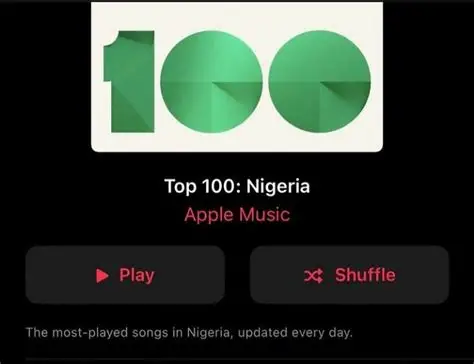Once upon a time, artists chased sound. Now, they chase streams.
And that, right there, might be the problem.
In today’s music industry, numbers are the new talent. Billboard charts, Spotify streams, YouTube views they’ve become the measure of greatness. But somewhere between “#1 on Apple Music” and “100 million streams in 48 hours,” something sacred got lost: the soul of the music.
When Metrics Became the Muse
Every week, artists from pop to Afrobeats flood our timelines with milestones:
“10 million streams in a day!”
“Fastest debut to chart in 5 countries!”
“Most Shazamed song in Lagos!”
Cool. But when the focus shifts from making timeless art to hitting numbers that look good on a press release, you start getting songs that sound like marketing plans not emotion.
Streaming platforms have made music more accessible, but they’ve also gamified it. The algorithm now plays executive producer. Tracks are designed for retention, not resonance. Choruses get shorter, hooks come quicker, intros vanish. Why? Because if you don’t grab attention in the first seven seconds, you lose a skip and a stream.
It’s less about how the song makes you feel, more about how long you stay before you swipe.
Afrobeats and the Algorithm Addiction
Afrobeats, once the sound of freedom and experimentation, has slowly been infected by this numbers bug.
Gone are the days when songs could breathe when Fela built an 11-minute groove before the first verse, or when Wande Coal layered harmonies just because he could. Now, the new formula is simple:
-
Intro (4 seconds)
-
Hook (8 seconds)
-
TikTok moment (12 seconds)
-
Repeat till viral.
Artists are no longer competing for legacy they’re competing for loops. Every song wants to trend. Every chorus wants a dance challenge. Every drop wants a brand deal.
And while this isn’t inherently bad, music has always evolved with culture the trade-off is glaring: depth is dying.
You can hear it in the sound. A lot of new releases feel algorithm-approved catchy but disposable, exciting but empty. They live fast, chart fast, and vanish even faster.
Labels Love It, Most Artists Don’t
The truth is the numbers game works for everyone except the music itself.
Labels use it to justify budgets. Brands use it to pick ambassadors. Even fans use it to settle Twitter wars. But for artists, it’s exhausting. The constant pressure to outperform their own numbers turns creativity into a scoreboard.
Some admit it quietly how they’re forced to make “streamable” songs, or how A&Rs reject deeper cuts for not being “playlist friendly.” The emotional risk-taking that once defined great albums is now a luxury few can afford.
The irony? The more we chase numbers, the less we create songs worth replaying.
The Cost of Being Viral
Virality is the new validation. But it’s also the new trap.
Artists are building discographies that sound like a collection of TikTok hits great for trends, forgettable in hindsight. There’s no space for silence, storytelling, or slow burns. Even fans are impatient; if a track doesn’t trend, it’s “mid.”
This obsession with metrics is making artists perform for algorithms instead of audiences. And the saddest part? Most of them know it they just can’t afford not to play the game.
The Return of Real?
Still, there’s hope. A quiet rebellion is happening. Artists like Tyla, Ayra Starr, Wizkid and even Burna Boy have started threading balance making music that slaps and lasts. They chase excellence first, not playlists.
Fans are catching on too. There’s a growing nostalgia for songs that breathe for albums that unfold like experiences, not data charts. People are realizing that “100 million streams” doesn’t always mean “a classic.”
Maybe the pendulum will swing back. Maybe music will rediscover its pulse. But for that to happen, artists and fans must start asking a harder question: Do we love the music, or do we love the numbers that come with it?
In the End
The numbers game didn’t just change how we listen; it changed why we create. Every chart position, every stream count, every viral moment adds pressure and the art bends beneath it.
Music used to be a conversation. Now, it’s a competition.
And until we learn to stop confusing popularity with purpose, we’ll keep dancing to songs that sound amazing today… and mean nothing tomorrow.


Leave a Reply